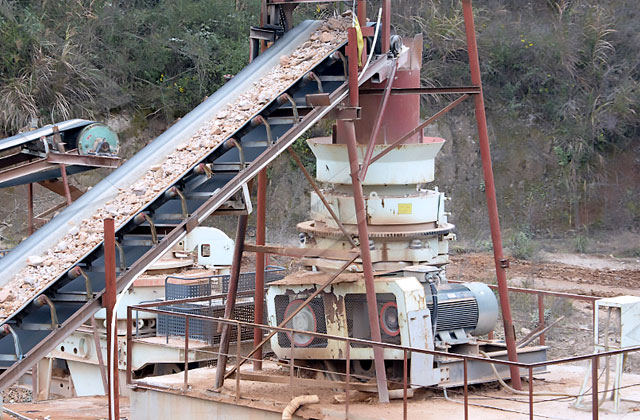Introduction to Mineral Processing Equipment Crushers
Mineral processing equipment plays a crucial role in the extraction and refinement of minerals from ores. Among these, crushers are fundamental tools that reduce large rocks into smaller, more manageable pieces, facilitating further processing. These machines are designed to handle a variety of materials, from soft rocks to hard ores, and they come in various types, each tailored to specific crushing needs. Understanding the different types of crushers and their applications is essential for optimizing mineral processing operations.

Types of Crushers
There are several types of crushers commonly used in mineral processing. Jaw crushers, for instance, are one of the most popular types due to their robust design and ability to handle large quantities of material. They operate by compressing material between two plates, resulting in a significant reduction in size. Cone crushers, on the other hand, are ideal for secondary and tertiary crushing, providing finer outputs. They utilize a rotating mantle within a concave bowl, allowing for the efficient processing of hard materials such as granite and basalt.
The Crushing Process
The crushing process involves several stages, typically beginning with primary crushing and followed by secondary and tertiary stages. During primary crushing, large rocks are fed into the crusher, where they are broken down into smaller pieces. This is crucial for improving the efficiency of subsequent processing stages. Secondary and tertiary crushers further reduce the size of the material, ensuring it meets the required specifications for downstream processes like grinding and separation. This multi-stage approach enhances the overall recovery of valuable minerals.
Factors Affecting Crusher Performance
Several factors can influence the performance of crushers in mineral processing. The hardness and moisture content of the material, as well as the desired product size, are critical considerations. Additionally, the design and configuration of the crusher itself play a significant role in its efficiency. Regular maintenance and proper operation are essential for maximizing performance and minimizing wear and tear on the equipment. Innovations in crusher technology, such as the use of advanced materials and automation, have also contributed to improved performance and reliability.
Selection of crushers for mineral processing
The choice of crusher type and design depends on various factors, including the nature of the material being processed, the desired product size, and the specific requirements of the mineral processing operation. Each type of crusher offers distinct advantages and limitations, making it essential for operators to evaluate their needs carefully. By selecting the appropriate crusher and optimizing its operation, mineral processing plants can significantly enhance their productivity and profitability while minimizing environmental impacts.
